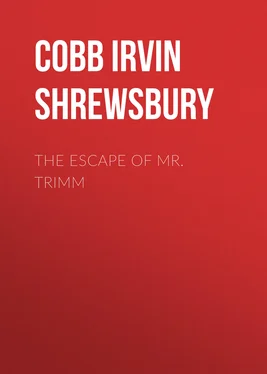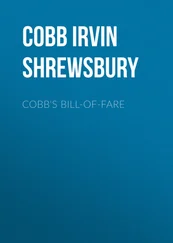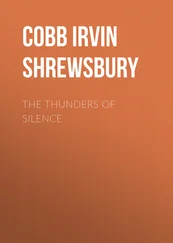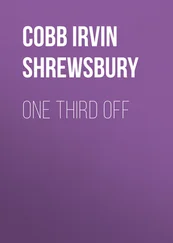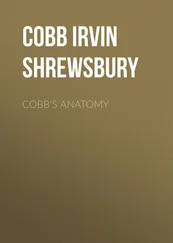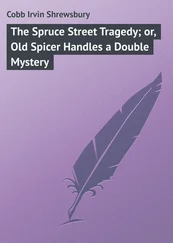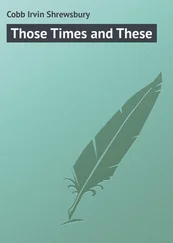Irvin Cobb - The Escape of Mr. Trimm
Здесь есть возможность читать онлайн «Irvin Cobb - The Escape of Mr. Trimm» — ознакомительный отрывок электронной книги совершенно бесплатно, а после прочтения отрывка купить полную версию. В некоторых случаях можно слушать аудио, скачать через торрент в формате fb2 и присутствует краткое содержание. Жанр: foreign_prose, Классический детектив, foreign_detective, foreign_antique, на английском языке. Описание произведения, (предисловие) а так же отзывы посетителей доступны на портале библиотеки ЛибКат.
- Название:The Escape of Mr. Trimm
- Автор:
- Жанр:
- Год:неизвестен
- ISBN:нет данных
- Рейтинг книги:4 / 5. Голосов: 1
-
Избранное:Добавить в избранное
- Отзывы:
-
Ваша оценка:
- 80
- 1
- 2
- 3
- 4
- 5
The Escape of Mr. Trimm: краткое содержание, описание и аннотация
Предлагаем к чтению аннотацию, описание, краткое содержание или предисловие (зависит от того, что написал сам автор книги «The Escape of Mr. Trimm»). Если вы не нашли необходимую информацию о книге — напишите в комментариях, мы постараемся отыскать её.
The Escape of Mr. Trimm — читать онлайн ознакомительный отрывок
Ниже представлен текст книги, разбитый по страницам. Система сохранения места последней прочитанной страницы, позволяет с удобством читать онлайн бесплатно книгу «The Escape of Mr. Trimm», без необходимости каждый раз заново искать на чём Вы остановились. Поставьте закладку, и сможете в любой момент перейти на страницу, на которой закончили чтение.
Интервал:
Закладка:
“I have come,” said the specter in a wheezing rasp of a voice which the chief could hardly hear—“I have come to surrender myself. I am Hobart W. Trimm.”
“I guess you got another thing comin',” said the chief, who was by way of being a neighborhood wag. “When last seen Hobart W. Trimm was only fifty-two years old. Besides which, he's dead and buried. I guess maybe you'd better think agin, grandpap, and see if you ain't Methus'lah or the Wanderin' Jew.”
“I am Hobart W. Trimm, the banker,” whispered the stranger with a sort of wan stubbornness.
“Go on and prove it,” suggested the chief, more than willing to prolong the enjoyment of the sensation. It wasn't often in Westfield that wandering lunatics came a-calling.
“Got any way to prove it?” he repeated as the visitor stared at him.
“Yes,” came the creaking, rusted hinge of a voice, “I have.”
Slowly, with struggling attempts, he raised his hands into the chief's sight. They were horribly swollen hands, red with the dried blood where they were not black with the dried dirt; the fingers puffed up out of shape; the nails broken; they were like the skinned paws of a bear. And at the wrists, almost buried in the bloated folds of flesh, blackened, rusted, battered, yet still strong and whole, was a tightly-locked pair of Bean's Latest Model Little Giant handcuffs.
“Great God!” cried the chief, transfixed at the sight. He drew the bolt and jerked open the lower half of the door.
“Come in,” he said, “and lemme get them irons off of you—they must hurt something terrible.”
“They can wait,” said Mr. Trimm very feebly, very slowly and very humbly. “I have worn them a long, long while—I am used to them. Wouldn't you please get me some food first?”
II
THE BELLED BUZZARD
There was a swamp known as Little Niggerwool, to distinguish it from Big Niggerwool, which lay across the river. It was traversable only by those who knew it well—an oblong stretch of tawny mud and tawny water, measuring maybe four miles its longest way and two miles roughly at its widest; and it was full of cypress and stunted swamp oak, with edgings of canebrake and rank weeds; and in one place, where a ridge crossed it from side to side, it was snaggled like an old jaw with dead tree trunks, rising close-ranked and thick as teeth. It was untenanted of living things—except, down below, there were snakes and mosquitoes, and a few wading and swimming fowl; and up above, those big woodpeckers that the country people called logcocks—larger than pigeons, with flaming crests and spiky tails—swooping in their long, loping flight from snag to snag, always just out of gunshot of the chance invader, and uttering a strident cry which matched those surroundings so fitly that it might well have been the voice of the swamp itself.
On one side little Niggerwool drained its saffron waters off into a sluggish creek, where summer ducks bred, and on the other it ended abruptly at a natural bank of high ground, along which the county turnpike ran. The swamp came right up to the road and thrust its fringe of reedy, weedy undergrowth forward as though in challenge to the good farm lands that were spread beyond the barrier. At the time I am speaking of it was mid-summer, and from these canes and weeds and waterplants there came a smell so rank as almost to be overpowering. They grew thick as a curtain, making a blank green wall taller than a man's head.
Along the dusty stretch of road fronting the swamp nothing living had stirred for half an hour or more. And so at length the weed-stems rustled and parted, and out from among them a man came forth silently and cautiously. He was an old man—an old man who had once been fat, but with age had grown lean again, so that now his skin was by odds too large for him. It lay on the back of his neck in folds. Under the chin he was pouched like a pelican and about the jowls was wattled like a turkey gobbler.
He came out upon the road slowly and stopped there, switching his legs absently with the stalk of a horseweed. He was in his shirtsleeves—a respectable, snuffy old figure; evidently a man deliberate in words and thoughts and actions. There was something about him suggestive of an old staid sheep that had been engaged in a clandestine transaction and was afraid of being found out.
He had made amply sure no one was in sight before he came out of the swamp, but now, to be doubly certain, he watched the empty road—first up, then down—for a long half minute, and fetched a sighing breath of satisfaction. His eyes fell upon his feet, and, taken with an idea, he stepped back to the edge of the road and with a wisp of crabgrass wiped his shoes clean of the swamp mud, which was of a different color and texture from the soil of the upland. All his life Squire H. B. Gathers had been a careful, canny man, and he had need to be doubly careful on this summer morning. Having disposed of the mud on his feet, he settled his white straw hat down firmly upon his head, and, crossing the road, he climbed a stake-and-rider fence laboriously and went plodding sedately across a weedfield and up a slight slope toward his house, half a mile away, upon the crest of the little hill.
He felt perfectly natural—not like a man who had just taken a fellowman's life—but natural and safe, and well satisfied with himself and with his morning's work. And he was safe; that was the main thing—absolutely safe. Without hitch or hindrance he had done the thing for which he had been planning and waiting and longing all these months. There had been no slip or mischance; the whole thing had worked out as plainly and simply as two and two make four. No living creature except himself knew of the meeting in the early morning at the head of Little Niggerwool, exactly where the squire had figured they should meet; none knew of the device by which the other man had been lured deeper and deeper in the swamp to the exact spot where the gun was hidden. No one had seen the two of them enter the swamp; no one had seen the squire emerge, three hours later, alone.
The gun, having served its purpose, was hidden again, in a place no mortal eye would ever discover. Face downward, with a hole between his shoulder blades, the dead man was lying where he might lie undiscovered for months or for years, or forever. His pedler's pack was buried in the mud so deep that not even the probing crawfishes could find it. He would never be missed probably. There was but the slightest likelihood that inquiry would ever be made for him—let alone a search. He was a stranger and a foreigner, the dead man was, whose comings and goings made no great stir in the neighborhood, and whose failure to come again would be taken as a matter of course—just one of those shiftless, wandering Dagoes, here today and gone tomorrow. That was one of the best things about it—these Dagoes never had any people in this country to worry about them or look for them when they disappeared. And so it was all over and done with, and nobody the wiser. The squire clapped his hands together briskly with the air of a man dismissing a subject from his mind for good, and mended his gait.
He felt no stabbings of conscience. On the contrary, a glow of gratification filled him. His house was saved from scandal; his present wife would philander no more—before his very eyes—with these young Dagoes, who came from nobody knew where, with packs on their backs and persuasive, wheedling tongues in their heads. At this thought the squire raised his head and considered his homestead. It looked good to him—the small white cottage among the honey locusts, with beehives and flower beds about it; the tidy whitewashed fence; the sound outbuildings at the back, and the well-tilled acres roundabout.
At the fence he halted and turned about, carelessly and casually, and looked back along the way he had come. Everything was as it should be—the weedfield steaming in the heat; the empty road stretching along the crooked ridge like a long gray snake sunning itself; and beyond it, massing up, the dark, cloaking stretch of swamp. Everything was all right, but–The squire's eyes, in their loose sacs of skin, narrowed and squinted. Out of the blue arch away over yonder a small black dot had resolved itself and was swinging to and fro, like a mote. A buzzard—hey? Well, there were always buzzards about on a clear day like this. Buzzards were nothing to worry about—almost any time you could see one buzzard, or a dozen buzzards if you were a mind to look for them.
Читать дальшеИнтервал:
Закладка:
Похожие книги на «The Escape of Mr. Trimm»
Представляем Вашему вниманию похожие книги на «The Escape of Mr. Trimm» списком для выбора. Мы отобрали схожую по названию и смыслу литературу в надежде предоставить читателям больше вариантов отыскать новые, интересные, ещё непрочитанные произведения.
Обсуждение, отзывы о книге «The Escape of Mr. Trimm» и просто собственные мнения читателей. Оставьте ваши комментарии, напишите, что Вы думаете о произведении, его смысле или главных героях. Укажите что конкретно понравилось, а что нет, и почему Вы так считаете.
